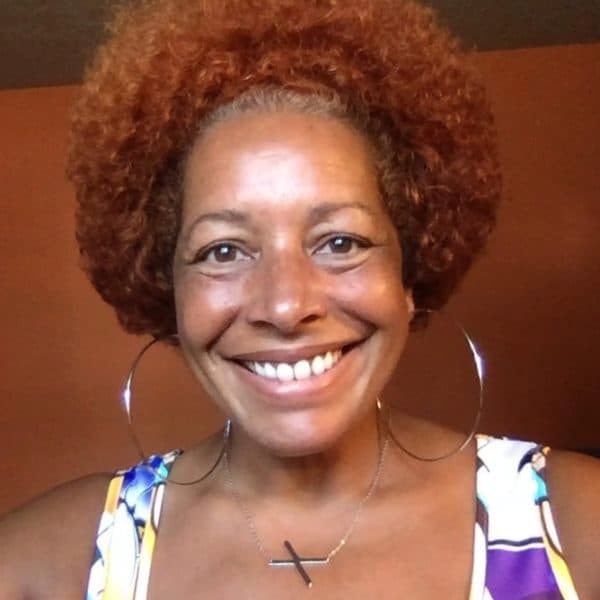Advertisement
Commentary
In These Anguishing Times, What Can You Do? Here's Where To Start

"How are you feeling?" I ask. A hundred anxious faces peer out of the screen, people from an organization I'm coaching. The chat lights up with rage and despair, sadness and shame. Some screens go dark as attendees are overwhelmed with emotion. Tears flow and tissues are produced. The heavy silence has nothing to do with the mute button and everything to do with the weight of collective grief. Sitting in the swirl of deep pain and sadness seems almost unbearable.
The dark silence repeats on call after call I have with organizations around the country. People are sharing their personal experiences with police and institutionalized racism, their fears for their children, their struggle to find hope for the future and also something else: a deep desire to act.
For the past week, massive protests against police brutality in response to the videotaped killing of George Floyd and the shooting of Breonna Taylor have mobilized thousands across the country. Many people have taken to the streets, but millions more watch as our country descends further into darkness, and militarized police respond with tear gas and rubber bullets, and the president provokes via Twitter from his bunker. The pain and shame of this moment, of the weight of 400 years of racial oppression, crystalizes for each of us into a single question: What should I do?
There is no one answer, but there are different answers to what each of us can do. We need a myriad of pieces to build a new nation where all can expect equal access to the dream of life, liberty and the pursuit of happiness. We must each surrender our ego to shift our collective consciousness and heal hundreds of years of oppression.
Any action we take must begin within each of us. People are at different places in learning and have different experiences with issues of race. Begin by asking, how am I feeling and what am I thinking at this moment? Ground yourself first in your own response to this trauma. Get clear on what you think beyond the news headlines.
"What can I do?" a friend asks. She is anxious, weaving back and forth before me, her eyes shining and intense. I can see she is coiled like a spring, ready to jump from her seat and head off at my word.
I tell her to watch and listen, to bear witness to the moment and to act right where she is. “Racism has been here a long time,” I tell her. “It’s likely to continue.
She deflates like a raft, slowly and in sections. “But that just leaves me feeling so sad.”
“Maybe sit with that feeling for a moment. Black people feel that all the time. The work starts" — I tap my chest — “first here, with empathy.”
For many people, particularly Black people, the events of this week are not shocking but another reminder of the daily pain and inequity inflicted on Black bodies and communities, coming at us in a year that has already seen the disproportionate impact of the coronavirus on the health and economic stability of the Black community. Racial trauma is real and can manifest in physical, psychological or spiritual ways. The grief, anger, sadness and numbness can be debilitating. Take time for radical self-care that makes space for healing and support, meeting what comes up so you don’t swallow it, perpetuating the pain of health inequities.
For those of you new to the struggle, you might need to form new and updated ways of thinking that better fits your moral code, and process your own emotions of shame, loss and grief before launching into changing others. Sit with the pain, reflect on what you are seeing and hearing from Black people as they express grief and rage. Unless you think about your own thinking, you are likely to rush into action that distracts from the feelings of pain. Center yourself in empathy and humility instead of jumping immediately into action and taking on the outsized task of saving the world. Educate yourself using one of many social justice syllabi or antiracist reading lists widely available online, and develop clear thinking about what you believe and the change you hope to make.
Center yourself in empathy and humility instead of jumping immediately into action and taking on the outsized task to save the world.
No matter who you are, you alone cannot undo systemic racism. But all of us can take on the task of engaging people around us. Like birds in a flock, each bird can affect the behavior of those closest. We can each reach out where we are to those we know and love. Your spouse and children, your uncle or cousin, friends and coworkers are all potential allies in the fight.
Conversation is an important step in creating a sustained commitment to antiracism, and a step anyone can take. You may not know the right words but practicing will strengthen your skills. Share with your conversation partners what you are seeing and feeling. Have honest and hard conversations about what you believe and what you learn about being actively antiracist in these challenging times.
Beyond dialogue, action is needed. Each of us can think about the organizations we belong to -- businesses, religious groups and social groups — and the agency we have as members or managers to create events and activities in our institutions. Bring opportunities to learn and talk to teams you work with. Examine policies and practices of your organization to ensure diversity, equity and belonging are a part of how the groups you are a part of govern themselves. Bring opportunities to learn and dialogue together to teams you work with.
This is not over, not by a long shot. This is a process requiring strengthening and conditioning of your thinking over time and in the face of continued inequity. We have been at this crossroads before only to circle back to the same place we have been for hundreds of years. But each time is another chance for each of us to recommit, to dig in and to find our place in a battle that we must win if we are ever to be the country we teach our children we are.
